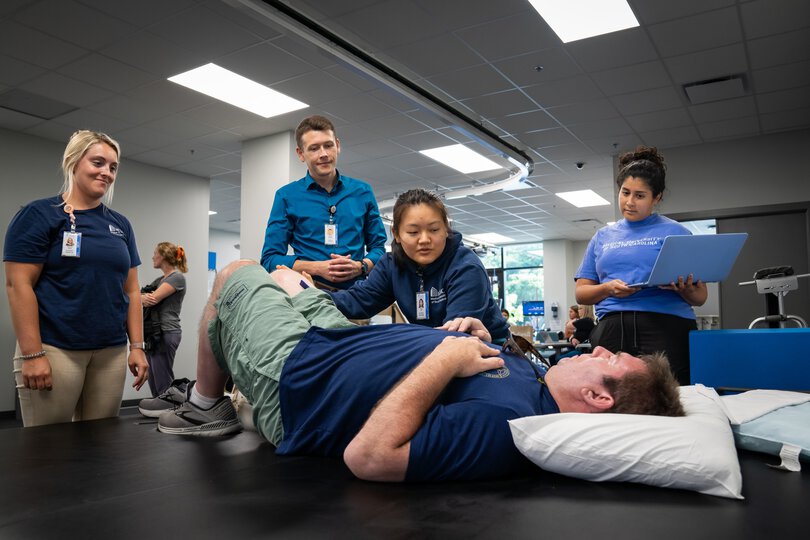Division of Physical Therapy
Empower movement and wellness through top-ranked physical therapy education, clinical excellence, and innovative research that transforms lives and practice.

We're ranked No. 22!
U.S. News & World Report ranked MUSC's Physical Therapy program No. 22 among the Best Grad Schools in the nation.
U.S. News & World Report, 2025
As reported by the Federation of State Boards of Physical Therapy for 2024.
About the Profession & the Programs We Offer
PTs examine, diagnose, and treat individuals of all ages, from newborns to the elderly, with health-related conditions that limit their ability to move and function daily. They help people understand their bodies so that they can manage health conditions and prevent mobility loss before it occurs by developing fitness and wellness-oriented programs for healthier and more active lifestyles.
The MUSC Division of Physical Therapy is among the top programs in the nation, ranked in the top 10% of physical therapy programs by U.S. News & World Report. The division offers a Doctor of Physical Therapy program in two formats, residential and hybrid, as well as four residency programs (geriatric, neurologic, orthopedic, and pediatric) for practicing physical therapists.
Residential DPT Program
For students interested in living in or near Charleston, SC, and engaging in a more traditional on-campus experience, our Residential DPT (Res DPT) is the perfect option. Students attend classes on the MUSC campus in the heart of the historic downtown, participate in activities that support the local community, and work collaboratively with students from other programs across the university.
Hybrid DPT Program
The hybrid format combines the prestige of the eight-semester curriculum from our nationally ranked program with the geographic flexibility of hybrid learning.You will experience the best of both worlds - dynamic online learning, occurring in directed asynchronous and live synchronous formats, and engaging, hands-on clinical labs in the vibrant and historic city of Charleston, SC
CARES Therapy Clinic
The student-run CARES Therapy Clinic provides a unique opportunity for students to gain hands-on, service-learning experience while providing pro-bono occupational, physical and speech therapy services to patients in the Charleston area.
Geriatric Residency
Promote optimal aging through movement. This hybrid program blends clinical experience and mentoring with online and in-person didactic work.
Neurologic Residency
The Neurologic Physical Therapy Residency currently offers opportunities for physical therapists working in the neurologic rehabilitation setting.
Orthopedic Residency
An accredited post-professional orthopedic residency. Graduates will be prepared to sit for the Orthopedic Physical Therapy Specialist Certification (OCS) Exam.
Pediatric Residency
With MUSC Shawn Jenkins Children’s Hospital, out-patient pediatric clinics, and SC Leadership Education in Neurodevelopmental and Related Disabilities (LEND).
Connect with the Division of Physical Therapy
Contact the CHP TeamPT News & Stories




